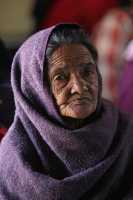
29 Oct Are the Oldest of Old Necessarily Lonely?
MedicalResearch.com Interview with:
 Dr Sharon Leitch | MBChB, DCH, PGDipGP, FRNZCGP
Dr Sharon Leitch | MBChB, DCH, PGDipGP, FRNZCGP
General Practitioner, Clinical Research Training Fellow
Department of General Practice and Rural Health
University of Otago
New Zealand
MedicalResearch.com: What is the background for this study?
Response: Loneliness is associated with poor health, reduced quality of life, and increased mortality. Loneliness typically worsens with age. We were curious to learn what the prevalence of loneliness was among older New Zealanders, if there were age-specific associations with loneliness, whether there were any associations between demographic and psychosocial variables and loneliness, and we also wanted to compare centenarians (100 years or older) with elderly people (aged 65-99 years). Centenarians are a particularly interesting group to study because they are a model of successful ageing.
The international Resident Assessment Instrument-Home Care (interRAI-HC) assessment has been mandatory in New Zealand for anyone undergoing assessment for publically funded support services or residential care since 2012, providing us with a comprehensive data set. We conducted a retrospective, observational, cross-sectional review of the interRAI-HC data from over 70,000 people living in the community who had their first assessment during the study period (January 2013-November 2017). We analysed eight items from the interRAI-HC data set to describe the population and evaluate the core psychosocial components of aging; age, gender, ethnicity, marital status, living arrangements, family support, depression and loneliness.
MedicalResearch.com: What are the main findings?
Response: We reviewed data from 191 centenarians and 73,286 elderly people. Centenarians were more likely to be female, widowed and free from depression compared to the elderly. Centenarians were less lonely than the elderly, with a 22% lower risk of loneliness in the unadjusted model, and a 32% reduced risk in the model fully adjusted for demographic and psychosocial variables. Living with others, having family support, and being free from depression were factors associated with a lower risk of loneliness.
MedicalResearch.com: What should readers take away from your report?
Response: Our sample of community-dwelling older New Zealanders under assessment for support services were less lonely than other groups studied internationally. While other researchers have found loneliness increases with age, our sample demonstrated a significant negative association between loneliness and age in both unadjusted models, and after adjustment for demographic and psychosocial variables. The study identified several psychosocial variables that were associated with the risk of loneliness, including living situation, family support and depression.
MedicalResearch.com: What recommendations do you have for future research as a result of this work?
Response: Loneliness affects people of all ages, but the trajectory of loneliness as people age is unclear. The prevalence of loneliness in different settings is another area for future research. Our research team is now investigating the interRAI-HC dataset to examine the interplay between loneliness, cognition, sensory impairment and physical health.
MedicalResearch.com: Is there anything else you would like to add?
Response: Loneliness is known to have serious adverse consequences for health and well-being. Strengthening social connections and treating depression may reduce loneliness and increase the well-being of people living in our communities. No disclosures.
Citation:
Leitch S, Glue P, Gray AR, Greco P, Barak Y. Comparison of Psychosocial Variables Associated With Loneliness in Centenarian vs Elderly Populations in New Zealand. JAMA Netw Open. 2018;1(6):e183880. doi:10.1001/jamanetworkopen.2018.3880
[wysija_form id=”3″]
[last-modified]
The information on MedicalResearch.com is provided for educational purposes only, and is in no way intended to diagnose, cure, or treat any medical or other condition. Always seek the advice of your physician or other qualified health and ask your doctor any questions you may have regarding a medical condition. In addition to all other limitations and disclaimers in this agreement, service provider and its third party providers disclaim any liability or loss in connection with the content provided on this website.
Last Updated on October 29, 2018 by Marie Benz MD FAAD
